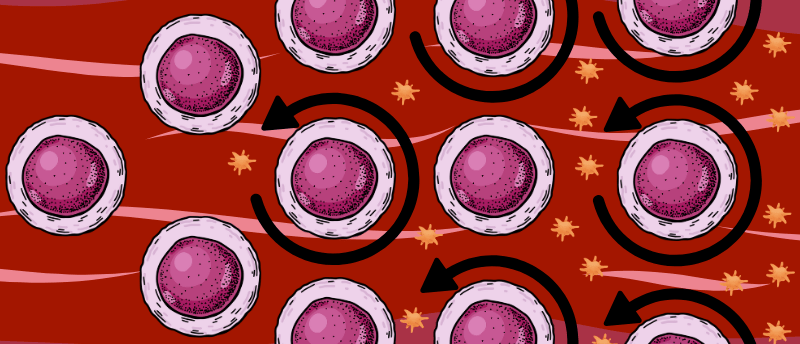Blood factor reverses aging in hematopoietic stem cells

Infusions of platelet factor 4 (PF4) have reversed aging in human hematopoietic stem cells (HSCs), the precursors of a range of blood and immune cells.
A team from the University of Illinois Chicago (IL, USA) has demonstrated that administering a platelet factor that naturally decreases over time rejuvenated murine and human HSCs. The ability to return HSCs to a youthful phenotype could pave the way towards treatments for HSC-related disorders, including blood cancer and cardiovascular disease.
HSCs can develop into both myeloid and lymphoid cells, but as we age, they become inclined towards myeloid cells. This leads to the number of lymphoid cells, which include our immune system’s T and B cells, decreasing, in turn affecting our immune system.
To better understand this paradigm, a team led by Sandra Pinho set out to investigate the mechanisms that underlie it. Initially exploring both mouse and human bone marrow samples, the team observed that PF4 is downregulated in the older populations of both mice and humans.
Exploring this finding further, the team demonstrated that the PF4-deficient mice displayed hallmarks of HSC aging, including increased myeloid production and DNA damage. Conversely, when PF4 was administered, their HSCs exhibited reduced DNA damage, enhanced capacity for in vivo reconstitution and balanced the production of myeloid versus lymphoid cells. They replicated this effect in human HSCs, “rejuvenating the aging of the blood system,” according to Pinho. Their work essentially reveals that PF4 downregulates the proliferation of HSCs, particularly those that produce myeloid cells, preventing them from multiplying out of control, mutating at a higher rate, explaining the reduced rate of DNA damage and
 Regular blood donation could promote beneficial genetic changes
Regular blood donation could promote beneficial genetic changes
Frequent blood donors may have genetic changes that promote the production of new, non-cancerous cells.
Understanding aging’s effects on cancer
However, due to its anti-proliferative potential, this finding does not just impact the aging of the immune system. “When stem cells start to divide more often than they should, and if their proliferation is not regulated, they can accumulate mutations over time,” explained Pinho; these mutations can lead to inflammation and further disorders, like cancer.
“Our hematopoietic stem cells are very rare. We call them the Holy Grail of the immune system,” continued Pinho. This work is “clear evidence that it’s possible to reverse, intrinsically, certain age-associated disorders.”
Pinho cautioned that this work is unlikely to reverse aging in all tissues. However, she believes that it could be a vital component in a future toolbox of treatments for age-related disease.